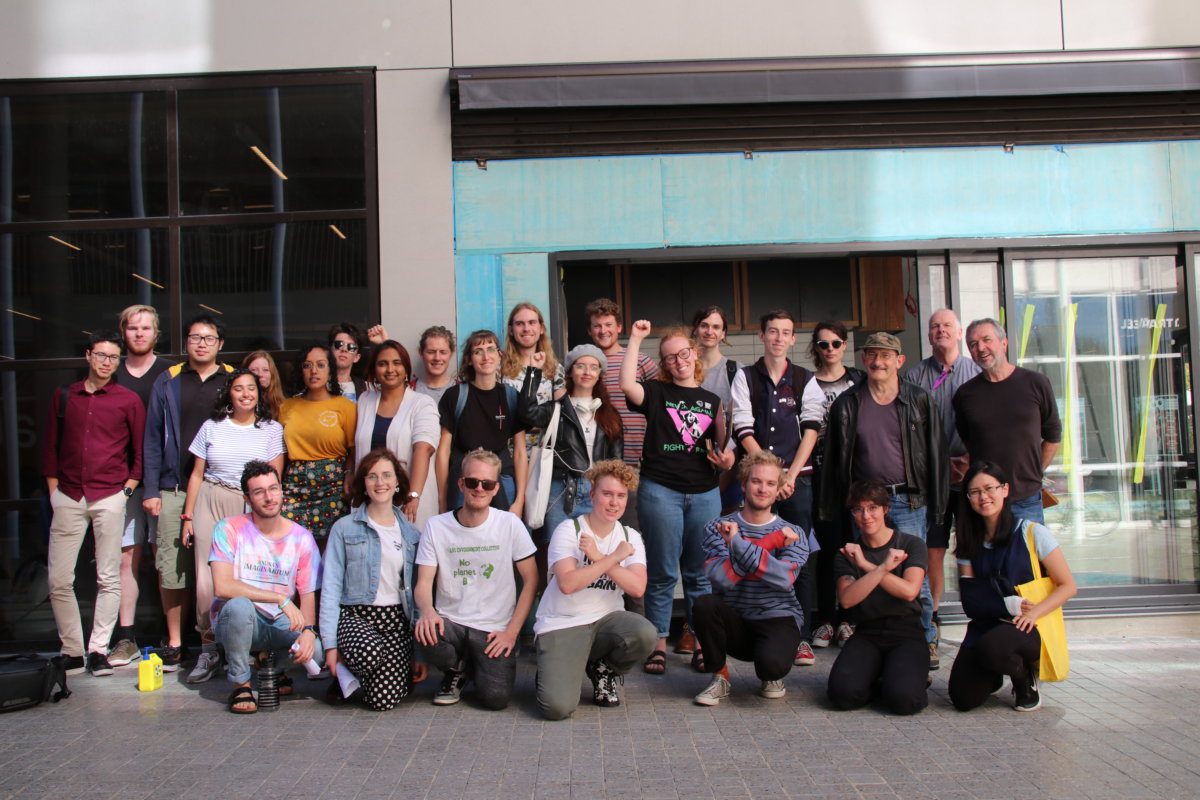The Environmental Collective and the Clubs Council convened a forum today, 24 April, to discuss the draft booking fees policy, which were revealed by Woroni earlier this month. The forum saw the meeting of ANUSA members, Environmental Collective members and concerned students on Kambri grass and the unanimous support of a motion at SRC requiring ANUSA to work to abolish fees.
The meeting began with a visit from ANU Security, who allowed the meeting to continue following reassurances that there would not be a protest. The Environmental Officer Nick Blood said that this was “really problematic” as students should be able to protest in the Kambri space.
The ANUSA representatives Social Officer Matthew Mottola and Education Officer Tanika Sibal attended the forum today. They were asked at the meeting to comment on the ANUSA position regarding the draft document.
Yesterday evening the ANUSA position was also queried by the Education Committee. ANUSA’s negotiations have been occurring on the condition of anonymity for the past few years, however Vice President Campbell Clapp did elaborate on the ANUSA position. He stated that at every draft stage, ANUSA representatives have pressed for the facilities to be free. He also said that ANUSA’s negotiations are strengthened by student discontent aired following the release of the draft policy by Woroni.
When pressed, Clapp said that the ANUSA position on free use of spaces did not extend to cultural spaces. The previous Drama Lab at Union Court incurred “comparable” fees for student groups using the space.
Student Zoe Ranganathan said at the Education Committee that “considering the way shows operate at the ANU and the amount of funding theatre societies get, the fees were not incredibly high.” She also referenced the new technology going into the Kambri cultural space and the role of fees in facilitating this.
This sentiment, that fees for theatre spaces and for public spaces were distinct issues, was reiterated by some students at the forum today.
Other students said that the use of the university space should be seen as a right of students. One student suggested the policy played into a wider gentrification of the ANU. He said “if you remember the ANU Bar, it was a place for students and this is no longer the case.” Another student said it was “the cherry on top” after years of inconvenience for a space that she “doesn’t get anything out of”.
The forum saw students break up into working groups to discuss a draft motion to be presented at the next SRC, to be held on April 30. According to the forum’s agenda, both Social Officer Mottola and ANUSA President Eden Lim support the idea of a motion relating to Kambri fees.
The motion called for ANUSA to support students right to university spaces at no cost. The motion also called for equal access to spaces for all clubs, as opposed to preferential treatment. It also demanded the ANUSA President to advocate at all opportunities for free spaces at Kambri and report back on its activities at each SRC.
The forum unanimously supported the SRC motion, and also raised discussion about a sustained campaign against fees.
The finalised policy was reported at the meeting to be released between April 29 and May 3. There is a review period following the implementation of the policy, and a forum led by the University will likely take place in the following weeks.
*Editor’s note (24/04/19): An earlier version of this article incorrectly stated that the Environmental Collective solely convened the forum. Also, it incorrectly stated that ANUSA vice president Campbell Clapp had attended the meeting. Furthermore, it incorrectly stated that the draft motion called for ANUSA to support students right to university spaces at no or negligible cost. This article has been amended to correct these inaccuracies. We apologise for this error.
We acknowledge the Ngunnawal and Ngambri people, who are the Traditional Custodians of the land on which Woroni, Woroni Radio and Woroni TV are created, edited, published, printed and distributed. We pay our respects to Elders past and present. We acknowledge that the name Woroni was taken from the Wadi Wadi Nation without permission, and we are striving to do better for future reconciliation.
